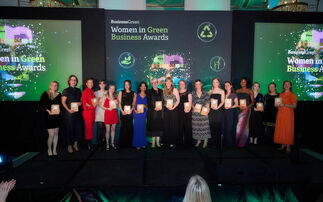Businesses aiming to generate sustainable profits need to make sustainable products, says AkzoNobel. If you don't, someone else will
We live in a world where consumers are increasingly concerned about the impact of the products that they use, resources are growing scarcer and where regulators are increasing the requirements for products...
To continue reading this article...
Join BusinessGreen
In just a few clicks you can start your free BusinessGreen Lite membership for 12 months, providing you access to:
- Three complimentary articles per month covering the latest real-time news, analysis, and opinion from Europe’s leading source of information on the Green economy and business
- Receive important and breaking news stories via our daily news alert
- Our weekly newsletter with the best of the week’s green business news and analysis







